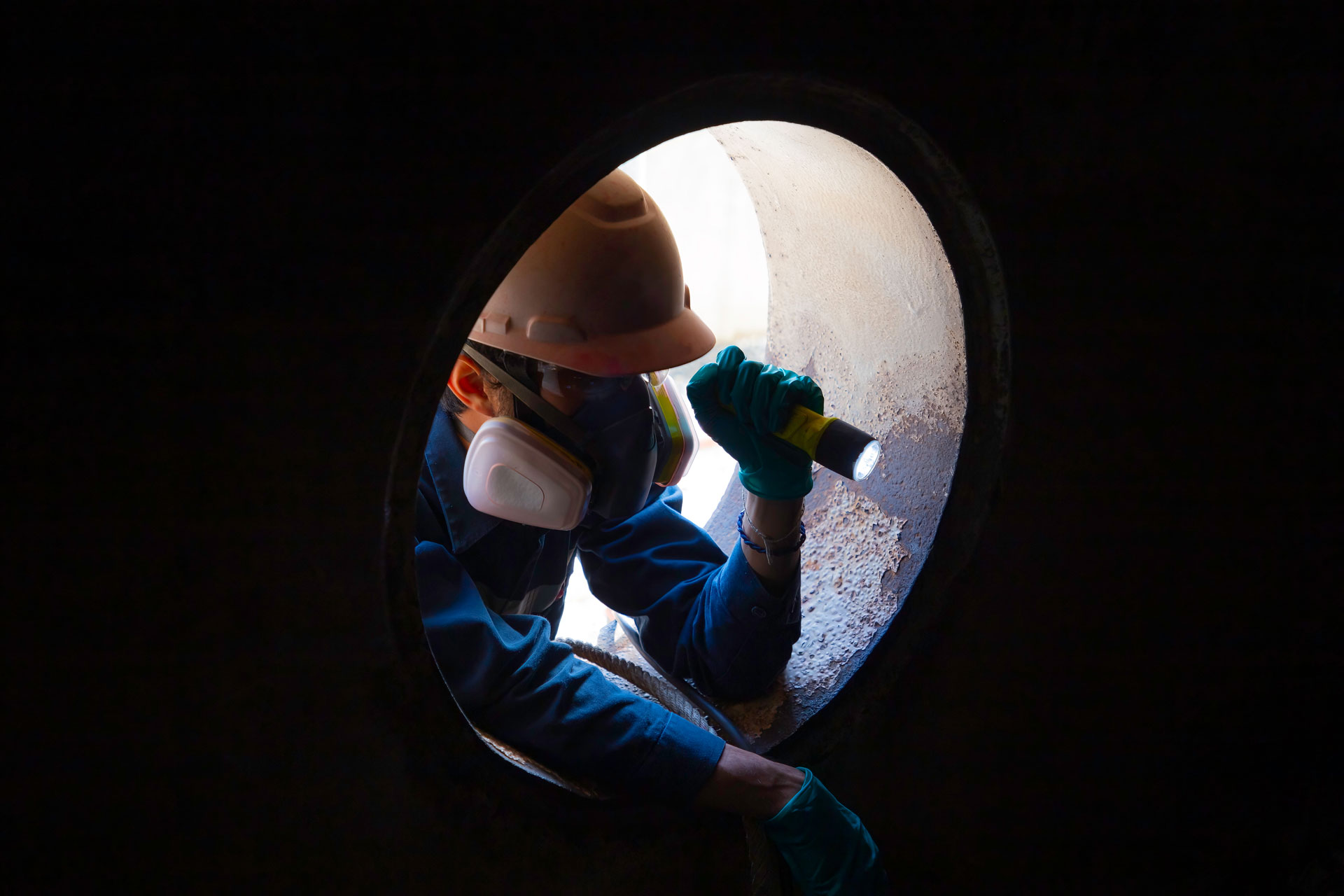
Many Victorian industries require work in confined spaces, and proper training is absolutely essential to ensure employees are educated on safety protocols before entering a confined space. Intelligent Training Solutions offers confined spaces training, helping workers learn to safely navigate tight quarters, where lack of airflow and warm temperatures can make it more difficult. Keep reading to learn more about safely navigating risk factors in confined spaces.
What are Confined Spaces?
Let’s start with the basics of confined spaces and what they actually are. As you’ll learn in our construction industry training courses, confined spaces are defined as areas with limited entry not suitable for human occupancy. The inside of a storage tank, underground sewers, pipes, tunnels, trenches, ducts and chimneys are just a few examples of confined spaces which workers only enter occasionally to conduct maintenance. Tight dimensions, restricted airflow and hazardous materials are all safety risks associated with confined spaces.
What Makes Confined Spaces Dangerous?
Decreasing oxygen levels and the presence of exhaust fumes and flammable gases are major concerns when working in confined spaces. High humidity, lack of air, low liquid intake and heavy physical labour put confined spaces workers at risk of heat stress and other health problems. Given the possibility of dehydration and exhaustion, it’s important to have a plan in place whenever employees enter and work in confined spaces. With the right protocols, workers can safely get the job done in confined spaces.
How Can You Work Safely in Confined Spaces?
Comprehensive training and PPE are necessary to ensure a safe work environment. Here are some key safety tips for dealing with tough conditions in confined spaces:
- Wear PPE with an anchor, body support, and retrieval line
- Be on the lookout for warning signs of heat stress, dehydration, or exhaustion, including headache, dizziness, fainting, weakness, wet skin, confusion, thirst, nausea and/or vomiting
- Establish a plan for intervention in case of illness or injury, including how to get workers out as quickly as possible without compromising safety
- Schedule regular work breaks so workers can get fresh air and water before returning to a confined space
Complete Confined Spaces Training in Victoria
Stay up to date on your certifications by completing confined spaces training, led by reputable instructors with real-world industry experience. Sign up for confined spaces training with Intelligent Training Solutions today.
